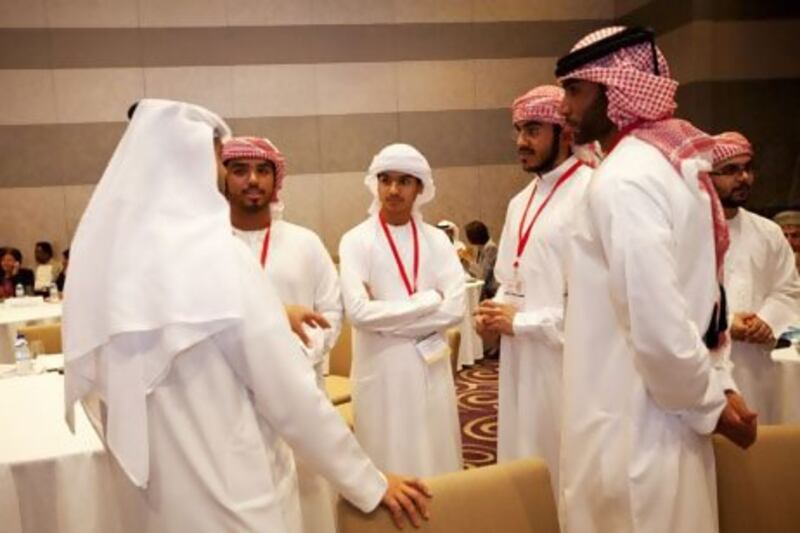Emirati youths entering the job market prioritise skills over salaries.
That was the message from young people attending the Emirati Youth Forum yesterday who said the opportunity to grow was the deciding factor in accepting a job - four places ahead of pay.
About 50 students and recent graduates took part in the forum held a day before the Emiratisation Summit. They were from universities in Al Ain, Abu Dhabi, Ajman, Dubai, Sharjah and Fujairah.
In a live voting session, 30 per cent of participants said the opportunity for growth and promotion was the most important factor when considering a job offer; 20 per cent said learning new skills was the top factor; while 18 per cent said work environment and culture was the main factor. Only 10 per cent said they would consider salary first. A mere 2 per cent said working hours were the most important criterion.
"Everyone is always saying that Emiratis [only consider] working hours and salary," said Sulaf Saleh Al Zu'bi, the chief executive of INJAZ UAE, an organisation that aims to build bridges between schools and colleges and the private sector.
"Employers tell me they can't hire Emiratis because they can't give them the salaries and working hours they demand. Hopefully this will prove them wrong."
Voting results also showed that students believed working in the private sector would present more demands than working for the government.
Asked whether working for the private sector would throw up challenges, 81 per cent said yes and 13 per cent said no. Responding to the same question about the government, 40 per cent said yes and 31 per cent said no.
The main concern about working in the private sector was competition for promotion and recognition; in the government, it was dealing with routine.
However, as Ms Al Zu'bi pointed out, competition for government jobs will intensify as demand outpaces supply, and as the government moves into supporting less traditional industries such as media and hospitality as the economy matures.
Many students were already aware of this, she said.
"When I am recruiting [private sector] volunteers, I hear them say, 'Emiratis don't need jobs'," she explained. "But then on the other side, I hear their issues about [getting] employment. The voices are missing each other. They are not listening to each other, and there is a strong sense of stereotypes."
Job fairs, career guidance and workshops with corporate guests are ways that universities can help create new perceptions about working in the private sector.
To do its bit, the business world can offer internships and trainee programmes to young graduates.
The results of yesterday's polling will be presented to policymakers, employers and the Government at the Emiratisation Summit today.





